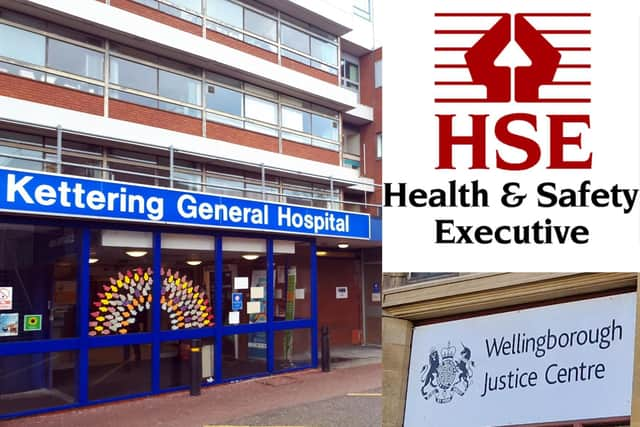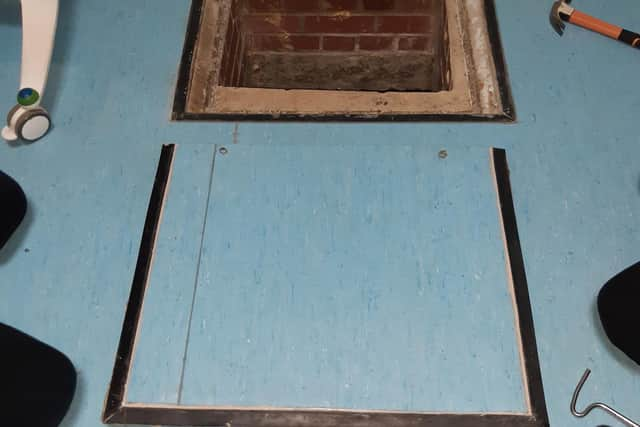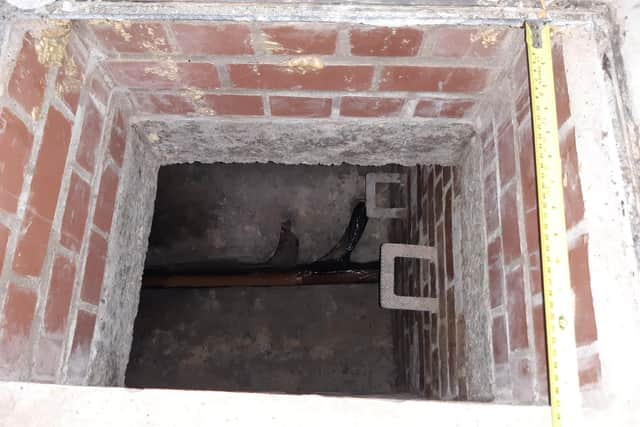Kettering General Hospital Trust fined £484,376 after worker fell down manhole and suffered brain damage
and live on Freeview channel 276
Kettering General Hospital Trust (KGH) must pay £484,376.15 after being fined by a court after a worker fell into a fume-filled drain he’d been sent to unblock.
Gerard Ellaway, employed as an engineer in the KGH estates department, was working to clear a sink in the rheumatology department after an ‘eggy smell’ was detected.
Advertisement
Hide AdAdvertisement
Hide AdAfter pouring hydrochloric acid down the plughole, it is believed he lifted the manhole cover to investigate further – an hour later he was found unconscious down the 8ft drain.


Handing down the fine District Judge Nick Watson told the court it was a ‘salutary lesson’ for the trust and said any fine he gave would impact staff, users and the local economy.
He said: “The trust fell short of the appropriate standards. Systems of work and training were inadequate. No precautions were taken, only informal procedures were followed. Insufficient instructions were given, and insufficient training as to when to call specialist contractors. No emergency arrangements were in place.”
On February, 1, 2022, Mr Ellaway had been discovered by colleagues after they noticed his tools next to the open manhole cover, an hour after he had tried to unblock a sink with acid.
Advertisement
Hide AdAdvertisement
Hide AdFirefighters were called to rescue the stricken worker who sustained a head injury due to his fall – he had also inhaled the toxic colourless and highly flammable gas – hydrogen sulphide.


He received treatment at the KGH’s A&E department. After spending seven weeks in hospital, Mr Ellaway was discharged home but had no memory of the incident and the week prior to the day it took place.
Prosecutor for the HSE Samantha Wells told the court that Mr Ellaway had suffered such severe injuries he had to learn to walk again, his wife Sharon taking on a role as his carer.
As well as damage to his shoulder and feet, he suffered brain damage leaving him with a ‘five per cent cognitive impairment’, unable to drive, shower and go to the toilet without help.
Advertisement
Hide AdAdvertisement
Hide AdIn an impact statement read to the court, Mr Ellaway said: “My recall is not as sharp anymore. I have been very frustrated after my accident. It causes some tensions in our relationship (with his wife). It’s been a long road (to recovery) but with everyone’s help we are making progress.”


KGH pleaded guilty to failing to ‘discharge general health, safety and welfare duty to employee’ and failing to ensure, ‘so far as was reasonably practicable’, the health, safety and welfare at work of all their employees, contrary to the Health and Safety at Work Act 1974.
Judge Watson concluded that the lack of the correct procedures had led to a real risk of death, physical and mental impairment.
Hospital chief executive of Kettering General Hospital, Deborah Needham said: “We offer our sincerest apologies to our colleague and his family. We acknowledge that we did not do enough to ensure his safety at work prior to this incident in February 2022.
Advertisement
Hide AdAdvertisement
Hide Ad“Since then, we have thoroughly investigated what happened and implemented a number of changes including; employing more health and safety advisers; increasing hazard awareness training; and implementing changes to guidance.
“We will continue to focus on ensuring we do all we can to look after the health and safety of our colleagues at work.”
HSE inspector Heather Campbell said: “This case highlights the dangers of working in confined spaces. The manhole should have been identified as a confined space, and risk assessed accordingly. Safe systems of work for entry into confined spaces should have been in place, such as those outlined in the HSE’s Approved Code of Practice.”